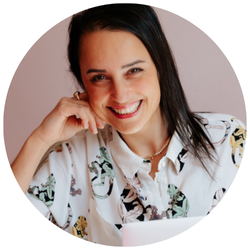Estás en tu escritorio intentando escribir una obra maestra, pero sigues mirando la página en blanco y ese evidente número de palabras: 0.
¿Empiezas a lamentarte por lo poco disciplinado que eres, por lo procrastinador que eres y por lo mucho que nunca serás escritor?
Si es así, detente ahora mismo. Respira hondo.
El problema no eres tú. Es la computadora portátil.
Sí, lo leíste bien.
Cuando no estamos concentrados o no somos productivos, inmediatamente culpamos a nuestro cerebro. Pero suele ser más por factores externos, como nuestros dispositivos digitales.
Exploremos cómo nuestras herramientas pueden afectar nuestra productividad.

El costo mental de las decisiones
Imagínate esto: tienes que comprar leche, así que entras en una pequeña tienda que sólo vende leche.
Es fácil, no puedes comprar nada más que leche y no hay estrés, ni decisiones que tomar, ni distracciones.
Ahora, supongamos que la tienda se expande para vender leche y pan. Vas allí y, sin duda, no te olvidas de comprar leche, pero tienes que pasar por la sección de leche y decidir si ignorar el pan al pasar, o si, después de todo, sí necesitas pan. Parece sencillo, pero ahora tienes un nivel adicional de decisión.
Ahora imagina que entras en un supermercado gigante donde venden todo lo que puedas imaginar.
No sólo tienes que acordarte de comprar leche, tienes que decidir qué hacer con todo lo que hay en esa tienda (aunque sea de manera inconsciente) y filtrar lo que no necesitas.
Esta elección se vuelve aún más difícil si cada producto está diseñado para captar la atención: envases atractivos, colores cautivadores, buenos precios u ofertas atractivas.
Piénsalo: ¿Cuántas veces has salido del supermercado con todo en el carrito excepto lo que necesitabas?
E incluso si recuerdas comprar lo que necesitas, a menudo sales con mucho más que eso, incluido mucho más estrés y agotamiento.
No eres tú
Concentrarse únicamente en lo que uno necesita mientras el resto del mundo le empuja y le tira en todas direcciones es exigente y requiere mucho esfuerzo mental ( como explicamos en nuestras entradas anteriores ).
¿Adivina qué? Escribir en tu portátil significa comprar constantemente en un supermercado enorme que vende de todo. Correo electrónico, redes sociales, juegos, Photoshop: todo está en un solo lugar y tu cerebro lo sabe.
¿Qué podemos hacer para combatir esto?
Tener una “lista de compras” (o lista de tareas pendientes) clara que nos recuerde lo que estamos haciendo es fundamental.
Pero podemos hacer más.
Dispositivos de un solo propósito
La forma más poderosa de aliviar la carga de distracción —o el potencial de distracción— en tu cerebro es elegir intencionalmente a qué quieres estar expuesto.
Una manera fácil es no escribir en tu portátil. Con el correo electrónico, los calendarios, las redes sociales y todas tus aplicaciones, tu portátil es un portal al mundo entero. Y eso automáticamente genera la tentación de hacer otra cosa, o de hacer varias cosas a la vez, algo que ya hemos comprobado que no funciona.
Evitar las distracciones inherentes a un dispositivo multipropósito obliga a nuestros cerebros a concentrarse en una tarea y a evitar la multitarea espontánea que induce naturalmente una computadora portátil.
La forma más poderosa de aliviar la carga de distracción —o el potencial de distracción— en tu cerebro es elegir intencionalmente a qué quieres estar expuesto.
En lugar de eso, deja la laptop para aquellas cosas que no puedes hacer en otro lugar. Cuando necesites escribir (componer, inventar o imaginar), usa un método diferente.
Quizás digas: "Pero puedo bloquear aplicaciones y activar el modo de concentración". Resulta que incluso la mera presencia de estos dispositivos reduce la capacidad cognitiva disponible y funciona como una distracción constante. ¡Incluso mirar los íconos nos distrae!
Resulta que incluso la mera presencia de estos dispositivos reduce la capacidad cognitiva disponible y funcionan como una distracción constante.
Por esta razón, muchas personas optan por escribir a mano. Sin embargo, convertir nuestro trabajo manuscrito al formato digital necesario para la mayoría de los fines editoriales y comerciales modernos requiere mucho tiempo. Por eso, muchas personas eligen dispositivos digitales de un solo uso como Freewrite.
Tomar menos decisiones significa ahorrar energía cognitiva para escribir y aumentar enormemente la productividad y la creatividad.
Entonces, si todavía estás mirando un recuento insignificante de palabras:
- Escribe tu "lista de compras" personal o utiliza una indicación para guiar tu creatividad y concentración , y
- Utilice herramientas libres de distracciones.
Este es un sistema simple pero perfecto para potenciar tu recuento de palabras.





























